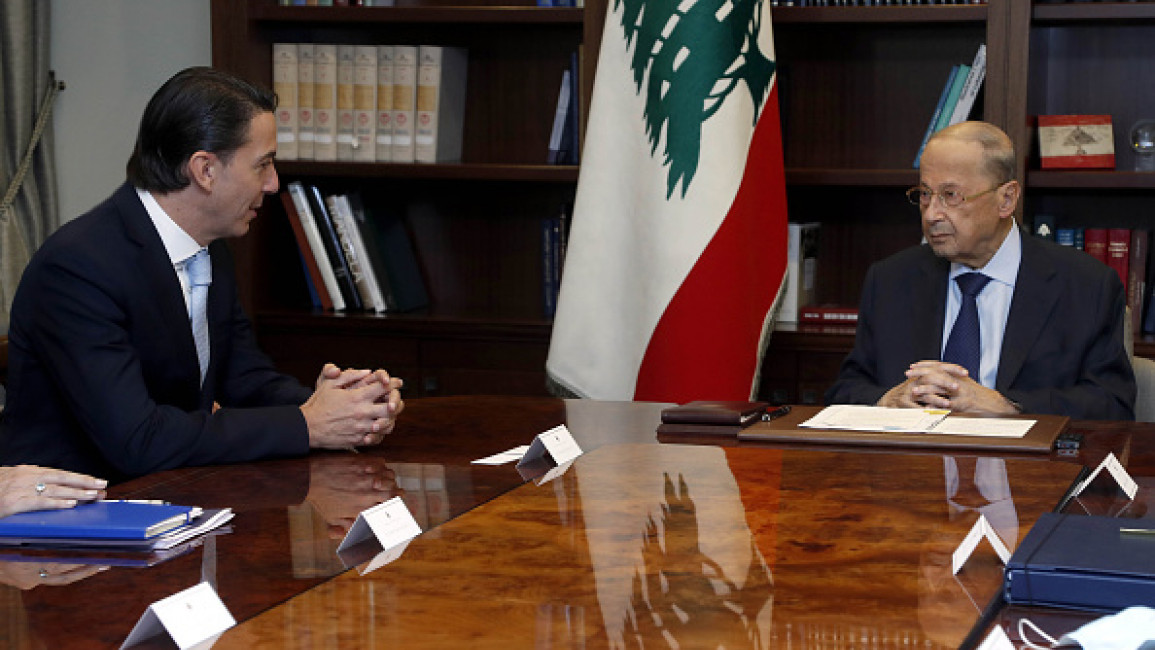US energy envoy in Beirut for Lebanon-Israel maritime negotiations
Amos Hochstein, the US Senior Energy Advisor appointed to mediate maritime negotiations between Lebanon and Israel, arrived in Beirut on Tuesday for another round of talks with the Lebanese negotiating team.
Hochstein’s visit to Beirut was preceded by him meeting with Israeli officials to discuss their negotiating position.
Lebanon and Israel do not agree on the division of their maritime boundaries and have engaged in on-and-off negotiations since at least 2012. Rounds of talks have been complicated by the fact that the two countries do not have diplomatic relations, nor do they agree on their land borders in Lebanon’s south.
The maritime area between the two countries is suspected to be rich in hydrocarbons, with national boundaries likely crossing natural gas fields. Both countries have had agreements with energy companies to explore, and potentially extract, hydrocarbons from offshore reserves.
Energy companies have however refused to begin exploration without a settled maritime border, wary of the risk that comes with disputed zones between the two restive neighbours. After exploration begins and hydrocarbons are found, monetising those resources could take between seven and eight years.
Negotiations have been stalled since May 2021, when the Lebanese side announced that talks would be postponed “indefinitely” due to what it styled as Israeli “preconditions”.
The “preconditions” described by Lebanon were the Israeli insistence on limiting negotiations to an 860 square kilometer (sq km) area, while Lebanon argues that the disputed zone is actually a wider, 2,290 sq km area.
In an attempt to bring the two sides to a common solution, Hochstein is engaging in “shuttle diplomacy”, Laury Hatayan, a Lebanese expert in energy policy and geopolitics, told The New Arab. Due to a lack of diplomatic recognition, the two countries do not meet directly; instead, Hochstein ferries proposals between the two negotiating teams.
Lebanon increased the pressure on Israel on January 28 though, when President Michel Aoun sent a letter to the UN saying that the Karish oil field lies within the disputed zone that is up for negotiation. The letter said that “Israel cannot continue its exploration operations nor begin extraction operations” within Karish field.
Both countries face pressures to begin extraction and production of oil from the offshore reserves. The timeline of Israel’s supposed energy extraction is also looming. Energean, the Greek energy giant tasked with exploration and production in the Karish and Tanin offshore reserves, is expecting to start exploration in early 2022, with first production starting in the second half of 2023.
Both exploration and production would be delayed in Karish, if the maritime dispute between the two countries continues to drag on. To fund the project, Energean has taken $2.5 billion in financing, the first instalment of which needs to be repaid in 2024.
Lebanon could greatly benefit from the funds given its current economic crisis, deemed one of the “top 3” economic crises in the last two hundred years by the World Bank.
Lebanon’s offshore gas reserves are estimated to be worth around $250 billion, or about eight times Lebanon’s GDP in 2020.



